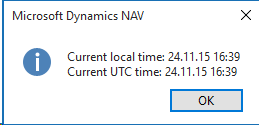Dynamically loading assemblies at runtime
When you spend more time in C# than C/AL, and you still tell yourself and the world around you that you are developing for NAV, then this post is for you.
I already wrote a three-article series about “DLL hell” and how to resolve it, and in my last post in the series (https://vjeko.com/sorting-out-the-dll-hell-part-3-the-code) I delivered some code that help you take control of your .NET assemblies.
This time, I am delivering an updated solution, one that solves all the problems others, and myself, have encountered in the meantime.
So, fasten the seatbelt, and let’s embark on another .NET interoperability black belt ride.




